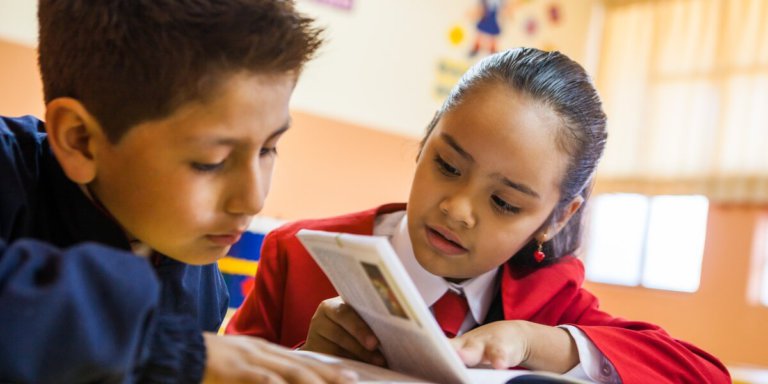
Good reading ability is often seen as an attribute to a student’s intelligence level. But reading comprehension is complex and there are many factors behind it.
Some students take a while to read certain words while others can read fluently from an early age. But does reading ability really matter when it comes to what they’re taking away from the reading material?
In kindergarten and early years, reading practices are generally for identifying letters, words and learning phonetic sounds.
But as students get older, they mainly read for comprehension. Youki Terada, Research and Standards Editor for Edutopia, has found that research has revealed an important factor to reading comprehension: background knowledge.
Background knowledge acts as scaffolding, so when a student builds on existing information they already know, they’re better able to understand and remember the material.
It doesn’t matter if they’re fluent readers, as if they don’t have any prior knowledge on the subject, they still aren’t going to be able to understand what they’re reading, or it will take them longer to do so.
Terada cited a study from the 1980s whereby researchers asked middle school students to read a passage that describes a baseball game, then consequently reenact the game with wooden figures on a miniature baseball field.
They found that students with high reading ability but little knowledge of baseball, and those with low reading ability and little knowledge of baseball, were equally incapable of recall or summarisation.
He wrote, “They were surprised by the results: Even the best readers struggled to re-create the events described in the passage.
“That modest experiment kicked off 30 years of research into reading comprehension, and study after study confirmed Recht and Leslie’s findings: Without background knowledge, even skilled readers labor to make sense of a topic.”
🚨 MUST READ ALERT! 🚨 @KarenBeerer, SVP of Teaching & Learning at @DiscoveryEd, wrote this eye-opening piece in @DA_magazine. She examines how science builds students’ background knowledge, which reinforces reading comprehension. Don’t miss it! >> https://t.co/xLgGILFHdl pic.twitter.com/0BspAajcxq
— Discovery Education (@DiscoveryEd) October 17, 2019
Another study from 2019 tested high school students with a list of 44 terms, asking them to identify whether each was related to the topic of ecology.
Terada wrote, “Researchers then analyzed the student responses to generate a background-knowledge score, which represented their familiarity with the topic.
“Without any interventions, students then read about ecosystems and took a test measuring how well they understood what they had read.
“Students who scored less than 59 percent on the background-knowledge test also performed relatively poorly on the subsequent test of reading comprehension.
“But researchers noted a steep improvement in comprehension above the 59 percent threshold—suggesting both that a lack of background knowledge can be an obstacle to reading comprehension, and that there is a baseline of knowledge that rapidly accelerates comprehension.”
Helping students develop reading comprehension skills
Background knowledge also helps students draw inferences, which develops critical thinking skills and makes reading more enjoyable.
When they can grasp the material and link it back to their own experiences or existing knowledge, they’re more likely to build a lifelong reading habit.
So how can teachers build background knowledge to help students with their reading comprehension?
Terada suggests “minding the gap”, which is to be mindful of the diverse backgrounds in a classroom.
“You may be an expert in civil war history, but be mindful that your students will represent a wide range of existing background knowledge on the topic.
“Similarly, take note of the cultural, social, economic, and racial diversity in your classroom. You may think it’s cool to teach physics using a trebuchet, but not all students have been exposed to the same ideas that you have.”
He also advises to build concept maps so students can have visual models, and incorporate formative assessments to identify gaps in knowledge.
Reading comprehension is a fundamental process for successful readers & formative assessment is an integral teaching principle to 📸where your Ss are, beginning to end. It’s important to know where they stand at any given time. ⬇️ https://t.co/YqUvJEf4kt #READ3384 #assessment
— Brandi Hutcheson (@BLHutch94) October 15, 2019
Its also good to sequence and scaffold lessons. Terada adds, “When introducing a new topic, try to connect it to previous lessons: Reactivating knowledge the students already possess will serve as a strong foundation for new lessons.
“Also, consider your sequencing carefully before you start the year to take maximum advantage of this effect.”
Liked this? Then you’ll love…
10-minute tip to get kids reading that every parent should know about
Lessons in large print: New report reviews student reading skills and outcomes







